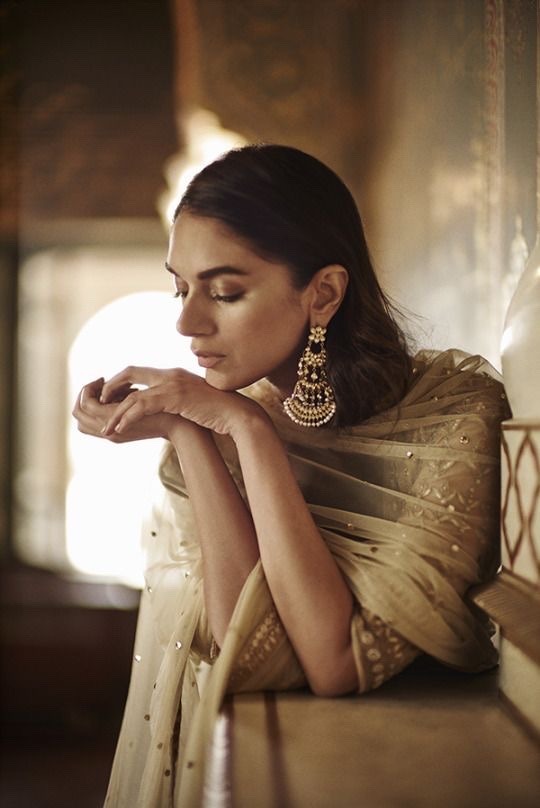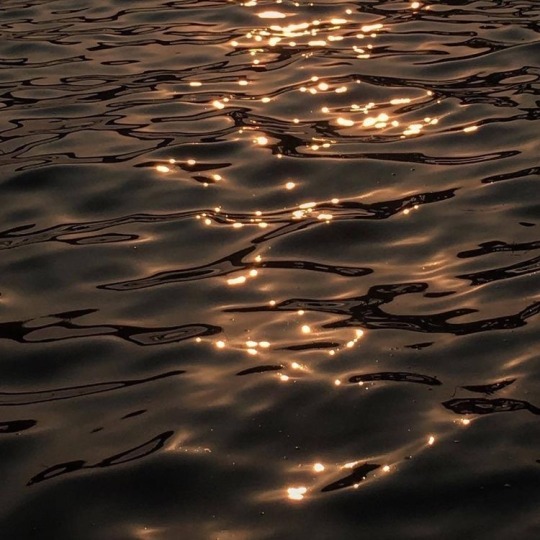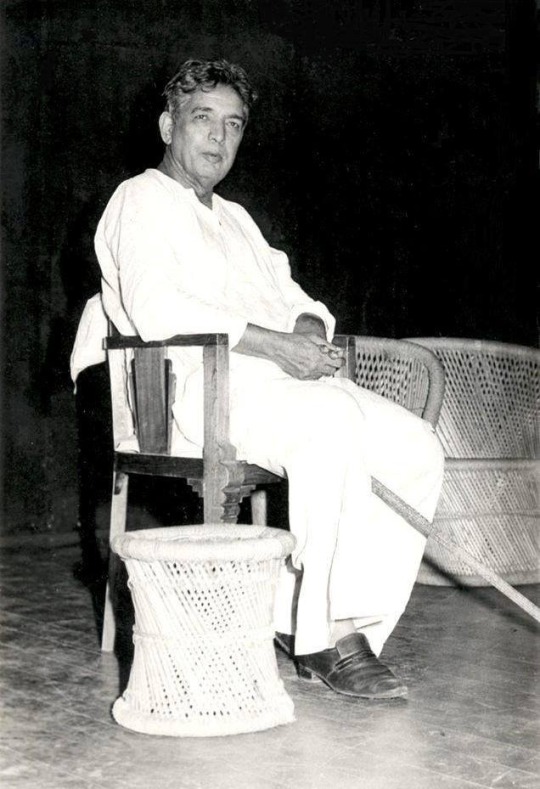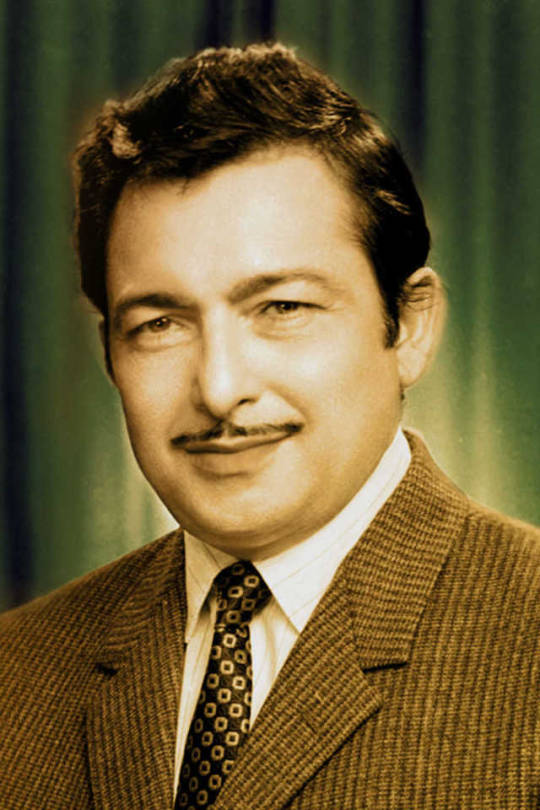#Heer Raanjha (1970)
Explore tagged Tumblr posts
Text

Heer Ranjha
#Heer Ranjha#story in pictures left to right#Punjab#punjabi aesthetics#desiblr#kikli#ranjha majhiya charayiya baara saal#Heer Ranjha: A True Love Story (2009)#Heer Raanjha (1970)#eternal love#romance#heer#ranjha#love#love is patient#Love the reaction of Ranjha and ladies to Heer in bridal attire in Heer Ranjha 1970 movie#desi#desi romance
18 notes
·
View notes
Text

53 Years of #HeerRaanjha (19/06/1970).
Heer Raanjha is a 1970 film, produced by son Ketan Anand and directed by father Chetan Anand. The film stars #RaajKumar, #PriyaRajvansh, #Pran, #PrithvirajKapoor, Ajit, Jayant, Sonia Sahni, Kamini Kaushal, Indrani Mukherjee, Achla Sachdev and Tun Tun.
The film is unique in the fact that the entire film and its dialogue is in verse, Kaifi Azmi writing the verse dialogue.
Songs by #MadanMohan and #KaifiAzmi.
#bollywoodirect#bollywood#heer raanjha#raaj kumar#priya rajvansh#chetan anand#tun tun#prithviraj kapoor#pran#ajit#jayant#kaifi azmi#madan mohan
2 notes
·
View notes
Video
youtube
Yeh Duniya Yeh Mehfil [Jhankar Beats] - Heer Raanjha (1970)
0 notes
Text



“Tune sab paaya hai, aashiq ki nazar paayi nahi. Jabse dekha tujhko duniya ki taraf dekha nahi... Jabse chaha tujhko apni yaad bhi aayi nahi. Tujhko paana zindagi hai, tujhko khona maut hai, aur kuch iske sivah mere fasaane mein nahi... Maang loonga mein khuda se yah chura loonga tujhe; tujhsa moti doosra uske khazane mein nahi.”
- Heer Raanjha, 1970
#love quote#i love you#love quotes#love#platonic love#heartache#heartbreak#poetas en tumblr#poemsofinstagram#poets on tumblr#poets corner#poemas de amor#literary quotes#book quotes#quoteoftheday#sher o shayari#urdu shayari#urdu shayar#shayarana#shayaari#literature#longing#hindishayari#hindi movie#indian woman
27 notes
·
View notes
Photo

Priya Rajvansh in a still from the classic Punjabi love story, Heer Raanjha (1970).
26 notes
·
View notes
Video
Kaifi Azmi in Dubai Mushaera 1995
Kaifi Azmi was a famous Hindi and Urdu poet and lyricist of Hindi film. He was born on January 14, 1919 in a landlord family of Mejwan, Azamgarh, Uttar Pradesh. Aazmi abandoned his studies of Persian and Urdu during the Quit India agitations in 1942 and shortly thereafter became a full-time Marxist. During this period, Azmi started to win great acclaim as a poet and became a member of Progressive Writers' Movement of India.
Later he went to Bombay and joined Ali Sardar Jafri in writing for the party’s paper, Qaumi Jung. In 1947, he visited Hyderabad to participate in a mushaira. There he met, fell in love and married a woman named Shaukat Azmi. She later became a renowned actress in theatre and films. Azmi's first collection of poems, Jhankar was published in 1943. As a lyricist and songwriter, though he wrote for numerous films, he will always be remembered for Kaagaz Ke Phool (1959), Haqeeqat (1964), Heer Raanjha (1970).
Azmi died on May 10, 2002. He was the recipient of Padma Shri, one of the Indian Government's highest civilian awards. Besides he was awarded the Uttar Pradesh Urdu Academy Award, Maharashtra Urdu Academy Award, Delhi Urdu Academy Award. He has also been honoured with a doctorate from Vishva Bharati University. He died in 2002.
0 notes
Video
youtube
HAPPY BIRTHDAY TO VETERAN ACTRESS...INDRANI MUKHERJEE( birth- 1 March )
Indrani Mukherjee is an Indian film actress, who worked in Hindi cinema in the 1960s-1970s, and is known for films like Usne Kaha Tha (1960), Aakhri Khat (1966), Parvarish (1977), Dharam Veer (1977), and Des Pardes (1978). Apart from Hindi films Indrani has also acted in Marathi films like Apradh.She was born and brought up in Allahabad. She started taking part in Hindi radio plays at All India Radio, Allahabad.Indrani is the aunt of famous American writer Kunal Mukherjee.

Her elder sister Maya was already an actress in Bengali cinema, when she happened to enter a beauty competition, wherein actress Nutan and Shobhana Samarth were judges.Thereafter she was screen tested by Bimal Roy,which led to her debut with Usne Kaha Tha (1960) directed by Moni Bhattacharjee and produced by Roy, with Sunil Dutt and Nanda as the leads.Her next film was Dharmputra (1961) opposite Shashi Kapoor and directed by Yash Chopra, and which won the National Film Award for Best Feature Film in Hindi.Her next big film was war film, Haqeeqat (1964) directed by Chetan Anand, who subsequently cast her as the lead, opposite debutante Rajesh Khanna in Aakhri Khat (1966), the film received critical acclaim, and was India's entry to the Academy Awards.

For next decade she became a regular feature in Hindi films, as a character actor, in notable films like, Mere Laal (the famous song payal ki jhankar raste raste was picturised on her), Grahasthi, Heer Raanjha (1970), Parvarish (1977) and Dharam Veer (1977), the Dharmendra starrer, in which played the pivotal role of Rajmata (Queen Mother). She also acted in a few Marathi and Bhojpuri films, including Apradh, Laagi Nahi Chhute Ram (1963).
youtube
0 notes
Photo










49 Years of Heer Raanjha. (19/06/1970)
Heer Raanjha is a 1970 film, produced by son Ketan Anand and directed by father Chetan Anand. The film stars Raaj Kumar, Priya Rajvansh, Pran, Prithviraj Kapoor, Ajit, Jayant, Sonia Sahni, Kamini Kaushal, Indrani Mukherjee, Achla Sachdev and Tun Tun. The film's music is by Madan Mohan.
The film is based on the legend of Heer Ranjha, the epic poem Heer by Punjabi poet, Waris Shah, written in 1766. The film is unique in the fact that the entire film and its dialogue is in verse, Kaifi Azmi writing the verse dialogue.
The film's songs and music are notable as is the photography by Jal Mistry, who shot most of Chetan Anand's films and won the Filmfare Award for the film. The film also showcases some of the best dialogues from the legendary actor Raaj Kumar.
#Heer Raanjha (1970)#Ketan Anand#Chetan Anand#Raaj Kumar#Priya Rajvansh#Pran#Prithviraj Kapoor#Ajit#Jayant#Sonia Sahni#Kamini Kaushal#Indrani Mukherjee#Achla Sachdev#Tun Tun#Madan Mohan#Kaifi Azmi#Jai Mistry#bollywood#bollywoodirect
10 notes
·
View notes
Text

Remembering Kaifi Azmi on his 18th death anniversary.
Sayyid Akhtar Hussein Rizvi, known as Kaifi Azmi (14th January 1919 – 10 May 2002) was an Urdu poet. He is remembered as the one who brought Urdu literature to Indian motion pictures. Together with Pirzada Qasim, Jon Elia and others he participated in the most memorable mushairas of the twentieth century.
Azmi's work in films includes working as a lyricist, writer and actor. Azmi wrote his first lyrics for the film Buzdil, directed by Shaheed Latif and music by SD Burman, released in 1951. His early work as a writer was mainly for Nanubhai Vakil's films like Yahudi Ki Beti (1956), Parvin (1957), Miss Punjab Mail (1958) and Id Ka Chand (1958). While directors like Khwaja Ahmad Abbas and Bimal Roy strove to create the "New Cinema", writers like Sahir Ludhianvi, Jan Nisar Akhtar, Majrooh Sultanpuri, and Kaifi changed the tenor and vocabulary of the Hindi film song, creating a fresh new wave in Hindi film lyrics that lasted many years. His greatest feat as a writer was Chetan Anand's Heer Raanjha (1970) wherein the entire dialogue of the film was in verse. It was a tremendous achievement and one of the greatest feats of Hindi film writing. Azmi also won great critical accolades for the script, dialogues and lyrics of M.S. Sathyu's Garam Hawa (1973), based on a story by Ismat Chughtai. Azmi also wrote the dialogues for Shyam Benegal's Manthan (1976) and Sathyu's Kanneshwara Rama (1977). As a lyricist and songwriter, though he wrote for numerous films, he will always be remembered for Guru Dutt's Kaagaz Ke Phool (1959) and Chetan Anand's Haqeeqat (1964), India's greatest war film. Some notables films for which he wrote lyrics include Kohra (1964), Anupama (1966), Uski Kahani (1966), Saat Hindustani (1969), Shola Aur Shabnam, Parwana (1971), Bawarchi (1972), Pakeezah (1972), Hanste Zakhm (1973), Arth (1982) and Razia Sultan (1983). For Naunihal (1967), he wrote the song "Meri Aawaz Suno Pyar ka Raaz Suno" (Hear my voice, hear the secret of love) sung by Mohammad Rafi. The song is picturised over the funeral procession of Prime Minister of India, Jawahar Lal Nehru. Years later, after Azmi's own death his daughter, Shabana Azmi mentioned finding comfort in verses from the song. He also played a memorable role of Naseem's grandfather in Naseem (1995). Azmi died on 10 May 2002 at around the age of eighty three. He was survived by his wife, daughter and son. His autobiography is included in a collection of his works, Aaj Ke Prashid Shayar: Kaifi Azmi.
4 notes
·
View notes
Photo




Birthday Greetings to Indrani Mukherjee, a heroine full of grace!
Yesteryear actors had a grace and style that is rare to find in films today. Indrani Mukherjee, a lead heroine of the 1960s and 1970s, exemplifies this. From her debut in Usne Kaha Tha to acting in hits such as Aakhri Khat, Indrani Mukherjee was known for her intense performances in the 1960s and 1970s.
Born and brought up in Allahabad, Indrani Mukherjee entered the industry at the age of 15. Indrani made her first appearance in films with the Moni Bhattacharjee-directed and Bimal Roy-produced Usne Kaha Tha (1960). Indrani went onto star in Yash Chopra’s Dharmputra (1961) opposite Shashi Kapoor. She was the first heroine of Rajesh Khanna, who debuted in the Chetan Anand-directed Aakhri Khat (1966), India’s entry for the Best Foreign Language Film at the Academy Awards, in which Indrani played the role of a young woman.
She acted in Shaadi (1962), Grahasti (1963), Haqeeqat (1964), Shaheed (1965), Bharat Milap (1965), Mere Lal (1966), Naunihal (1967) , Aan Milo Sajna (1970), Heer Raanjha (1970), Parvarish (1977), Zameer (1975), Dharam Veer (1977), Des Pardes (1978), Mr. Natwarlal (1979), Naseeb (1981), among others.
Famous songs picturised on her were “Tumhari Zulf Ke Saaye Mein” (Naunihal), “Bhool Sakta Hai Bhala Kaun Yeh Pyaari Aankhen Rang” (Dharmputra). But among the most well-known is arguably “Baharon mera jeevan bhi sawaro” of Aakhri Khat with the music composition by Khayyam and lyrics by Kaifi Azmi that is evergreen.
She also acted in a few Marathi and Bhojpuri films, including Apradh (1979) in Marathi, where she delivered a stellar performance and Laagi Nahi Chhute Ram (1963) in Bhojpuri.
Indrani Mukherjee retired from the industry in the mid-1980s to take care of her children.
2 notes
·
View notes
Photo










48 Years of Heer Raanjha. (19/06/1970)
Heer Raanjha is a 1970 film, produced by son Ketan Anand and directed by father Chetan Anand. The film stars Raaj Kumar, Priya Rajvansh, Pran, Prithviraj Kapoor, Ajit, Jayant, Sonia Sahni, Kamini Kaushal, Indrani Mukherjee, Achla Sachdev and Tun Tun. The film's music is by Madan Mohan.
The film is based on the legend of Heer Ranjha, the epic poem Heer by Punjabi poet, Waris Shah, written in 1766. The film is unique in the fact that the entire film and its dialogue is in verse, Kaifi Azmi writing the verse dialogue.
The film's songs and music are notable as is the photography by Jal Mistry, who shot most of Chetan Anand's films and won the Filmfare Award for the film. The film also showcases some of the best dialogues from the legendary actor Raaj Kumar.
#Raaj Kumar#Priya Rajvansh#amar prem#Prithviraj Kapoor#Ajit#Jayant#Sonia Sahni#Kamini Kaushal#Indrani Mukherjee#Achla Sachdev#Tun Tun#Madan Mohan#Kaifi Azmi#Jal Mistry#Chetan Anand#Ketan Anand#bollywood#bollywoodirect
12 notes
·
View notes
Photo

Remembering legendary music composer Madan Mohan on his 94th birth anniversary.
Madan Mohan Kohli (25 June 1924 – 14 July 1975), better known as Madan Mohan, was a music director of the 1950s, 1960s, and 1970s.
He scored his first big break with the film Aankhen (1950 film) in 1950. His next film was "Adaa" which saw the beginning of a long lasting collaboration with Lata Mangeshkar; who would go on to sing for many of his films. Two of his composed songs from "Sharabi" "Sawan ke maheeney mein" and the classic song "Kabhi na Kabhi koi na koi toh aayega", both filmed for Dev Anand are among the most well known renditions of the renowned singer Mohammad Rafi. In addition, his other compositions like Wo Chup Rahen To from the film Jahan Ara (1964) and Maine Rang Li Aaj Chunariya from Dulhan Ek Raat Ki (1966) are two similar examples. Madan was also able to write songs for male singers such as Talat Mahmood (Phir wahi Sham, wahi dil, wahi tanhayee hai, Main Teri Nazar Ka Suroor Hoon and Teri Aankh Ke Aansoo from Jahan Ara, and Meri Yaad Mein Tum Na from Madhosh) and Mohammad Rafi (Ek Haseen Shaam Ko from Dulhan Ek Raat Ki, Kisi Ki Yaad Mein from Jahan Ara, Main Nigahen Tere Chehere Se from Aap Ki Parchaiyian, Aap Ke Pehlun Mein Aakar Ro Diye from Mera Saaya, the all-time haunting Meri Awaaz Suno and Tumhare Zulf Ke Sayen from Naunihal, Teri Aankhon Ke Siva Duniya Mein from Chiraag as well. Madan did not usually employ Kishore Kumar. Nonetheless their partnership created songs as well; in this category fall songs such as Simti Si, Sharmai Si from Parwana, Zaroorat Hai, Zaroorat Hai from Manmauji, the title song from Ek Muthi Aasman, Mera Naam Abdul Rehman from Bhai Bhai, and Aai Hasino, Naazanino from Chacha Zindabad. Madan often collaborated with lyricists Raja Mehdi Ali Khan, Kaifi Azmi, and Rajinder Krishan, Sahir Ludhianvi and Majrooh Sultanpuri for his movies.
In 1957 he came out with a film named Dekh Kabira Roya in which the legendary singer Manna Dey gave his voice to the melodious Kaun Aaya Mere Man Ke Dwaare and unforgettable numbers like Tum Bin Jeevan Kaisa Jeevan in the film Bawarchi. In addition to that, he had Lata sing Tu Pyaar Kare Ya Thukraaye and Meri Veena Tum Bin Roye numbers, and he used Talat Mahmood for the song Hum Se Aaya Na Gaya in the same movie. Once in an interview Manna Dey recalled that Madan Mohan asked him to take special care when singing Kaun Aaya Mere Man Ke Dwaare.
A film scored by Madan was Chetan Anand's Haqeeqat (1964), starring Balraj Sahni and Dharmendra and based on the Sino-Indian War of 1962. In it, he used Rafi, who sang numbers like Kar Chale Hum Fida, Main Yeh Soch Kar. Lata was used for the song Zara Si Aahat Hoti Hai and the unscreened " Khelo na mere dilse". And the same film saw Rafi, Talat, Manna Dey, and Bhupendra singing Hoke Majboor Mujhe Usne Bhulaya Hoga. Bhupendra appeared on the screen as well for the first time, much before he established himself as a playback singer. This song is also the only song in which four top-rated male playback singers have put voices together in a song. In 1966, he again paired with Lata Mangeshkar for Mera Saaya.
Madan Mohan's venture was Raj Khosla's version of "Woman in White", titled "Woh Kaun Thi?". This film has three Lata solos ('Naina barse rim jhim rim jhim', 'Lag ja gale' and 'Jo humne daastaan apni sunayee') and a Lata duet.
The late fifties, sixties and the early seventies were the most productive period in Madan Mohan's career. His songs from those decades include compositions for films like Adalat, Anpadh, Dulhan ek raat ki, Mera Saya, Dastak, Hanste Zakhm, Heer Raanjha, Maharaja, and Mausam, among many others. His second last bow was for a film released five years after his death, Chalbaaz. In 1970, during the changing times of western music he gave music based on ragas for Rajinder Singh Bedi's Dastak and won his only 1971 National Film Award for Best Music Direction. Its songs sung by Lata Mangeshkar are still considered her finest.
His legacy wouldn't be complete without mentioning the ghazal he composed for the movie "Dil Ki Rahein" - "Rasm-e-ulfat ko nibhaein to nibhaein kaise". The shayar(lyricist) for the ghazal was Naqsh Lallayalpuri and it was sung by Lata Mangeshkar. It is considered as one of the best songs sung by Lata Mangeshkar, ever.
Madan Mohan's son Sanjeev Kohli recreated 11 of his late father's unused compositions for the soundtrack of the 2004 Yash Chopra film Veer-Zaara. Later on, Kohli brought out an album "Tere Baghair" which contains some of Madan Mohan's songs.
5 notes
·
View notes
Photo

Tribute to Kaifi Azmi, one of the greatest Urdu poets and lyricists, on his 16th death anniversary. Kaifi Azmi’s contribution to the world of music and literature stands unparalleled. A romantic revolutionary, Kaifi Azmi changed Hindi cinema with his intense, emotional verses. Azmi's work in films includes working as a lyricist, writer and actor. Azmi wrote his first lyrics for the film Buzdil, directed by Shaheed Latif and music by SD Burman, released in 1951. His early work as a writer was mainly for Nanubhai Vakil's films like Yahudi Ki Beti (1956), Parvin (1957), Miss Punjab Mail (1958) and Id Ka Chand (1958). While directors like Khwaja Ahmad Abbas and Bimal Roy strove to create the "New Cinema", writers like Sahir Ludhianvi, Jan Nisar Akhtar, Majrooh Sultanpuri, and Kaifi changed the tenor and vocabulary of the Hindi film song, creating a fresh new wave in Hindi film lyrics that lasted many years. His greatest feat as a writer was Chetan Anand's Heer Raanjha (1970) wherein the entire dialogue of the film was in verse. It was a tremendous achievement and one of the greatest feats of Hindi film writing. Azmi also won great critical accolades for the script, dialogues and lyrics of M.S. Sathyu's Garam Hawa (1973), based on a story by Ismat Chughtai. Azmi also wrote the dialogues for Shyam Benegal's Manthan (1976) and Sathyu's Kanneshwara Rama (1977). As a lyricist and songwriter, though he wrote for numerous films, he will always be remembered for Guru Dutt's Kaagaz Ke Phool (1959) and Chetan Anand's Haqeeqat (1964), India's greatest war film. Some notables films for which he wrote lyrics include Kohra (1964), Anupama (1966), Uski Kahani (1966), Saat Hindustani (1969), Shola Aur Shabnam, Parwana (1971), Bawarchi (1972), Pakeezah (1972), Hanste Zakhm (1973), Arth (1982) and Razia Sultan (1983). For Naunihal (1967), he wrote the song "Meri Aawaz Suno Pyar ka Raaz Suno" (Hear my voice, hear the secret of love) sung by Mohammad Rafi. The song is picturised over the funeral procession of Prime Minister of India, Jawahar Lal Nehru. Years later, after Azmi's own death his daughter, Shabana Azmi mentioned finding comfort in verses from the song. He also played a memorable role of Naseem's grandfather in Naseem (1995). Azmi died on 10 May 2002 at around the age of eighty three. He was survived by his wife, daughter and son. His autobiography is included in a collection of his works, Aaj Ke Prashid Shayar: Kaifi Azmi.
Follow @bollywoodirect
3 notes
·
View notes
Photo

Remembering Raaj Kumar on his 91st birth anniversary. Raaj Kumar (8 October 1926 – 3 July 1996), born Kulbhushan Pandit, was an actor. He worked as sub-inspector of Mumbai Police in the late 1940s before he turned to acting with the 1952 film Rangeeli. He appeared in the Oscar-nominated 1957 film Mother India and went on to star in over 70 Hindi films in a career that spanned over four decades. Raaj Kumar made his acting debut in the 1952 film Rangili and appeared in films like Aabshar, Ghamand and Lakhon Mein Ek, but it was as Prince Naushazad in Sohrab Modi’s Nausherwan-E-Adil (1957) that he became famous. In 1957, he achieved prominence with his brief role as the husband of Nargis in Mother India. He followed this with the unglamorous role of a mill worker in Paigham (1959) alongside Dilip Kumar. He was cast with Sunil Dutt, Shashi Kapoor and Balraj Sahni in Yash Chopra’s family drama Waqt. In Sridhar’s Dil Ek Mandir, Raaj Kumar played the role of a cancer patient for which he won the Filmfare Award in the Best supporting actor category for movies Dil Ek Mandir and Waqt. He became known for his distinct style of dialogue delivery. His other notable films included Hamraaz (1967), Heer Raanjha (1971), Lal Patthar (1971) and Pakeezah (1972). He acted in fewer films by the mid 1970s and became a character actor in the 1980s with films like Kudrat (1981), Ek Nai Paheli (1984), Marte Dam Tak (1987), Muqaddar Ka Faisla (1987) and Jung Baaz (1989). In 1991, he reunited with Dilip Kumar after 32 years in Subhash Ghai's Saudagar and appeared in the 1992 hit film Tirangaa. His last film appearance was in 1995's God & Gun. From his screen debut in Rangili in 1952 to his last film God & Gun in 1995, he played memorable characters in 70-odd films. Like बॉलीवुड डायरेक्ट Bollywoodirect
4 notes
·
View notes
Photo

Remembering Raaj Kumar on his 21st death anniversary. Raaj Kumar (8 October 1926 – 3 July 1996), born Kulbhushan Pandit, was a film actor. He worked as sub-inspector of Mumbai Police in the late 1940s before he turned to acting with the 1952 film Rangeeli. He appeared in the Oscar-nominated 1957 film Mother India and went on to star in over 70 Hindi films in a career that spanned over four decades. Raaj Kumar made his acting debut in the 1952 film Rangili and appeared in films like Aabshar, Ghamand and Lakhon Mein Ek, but it was as Prince Naushazad in Sohrab Modi’s Nausherwan-E-Adil (1957) that he became famous. In 1957, he achieved prominence with his brief role as the husband of Nargis in Mother India. He followed this with the unglamorous role of a mill worker in Paigham (1959) alongside Dilip Kumar. He was cast with Sunil Dutt, Shashi Kapoor and Balraj Sahni in Yash Chopra’s family drama Waqt. In Sridhar’s Dil Ek Mandir, Raaj Kumar played the role of a cancer patient for which he won the Filmfare Award in the Best supporting actor category for movies Dil Ek Mandir and Waqt. He became known for his distinct style of dialogue delivery. His other notable films included Hamraaz (1967), Heer Raanjha (1971), Lal Patthar (1971) and Pakeezah (1972). He acted in fewer films by the mid 1970s and became a character actor in the 1980s with films like Kudrat (1981), Ek Nai Paheli (1984), Marte Dam Tak (1987), Muqaddar Ka Faisla (1987) and Jung Baaz (1989). In 1991, he reunited with Dilip Kumar after 32 years in Subhash Ghai's Saudagar and appeared in the 1992 hit film Tirangaa. His last film appearance was in 1995's God & Gun. From his screen debut in Rangili in 1952 to his last film God & Gun in 1995, he played memorable characters in 60-odd films. Like बॉलीवुड डायरेक्ट Bollywoodirect
2 notes
·
View notes
